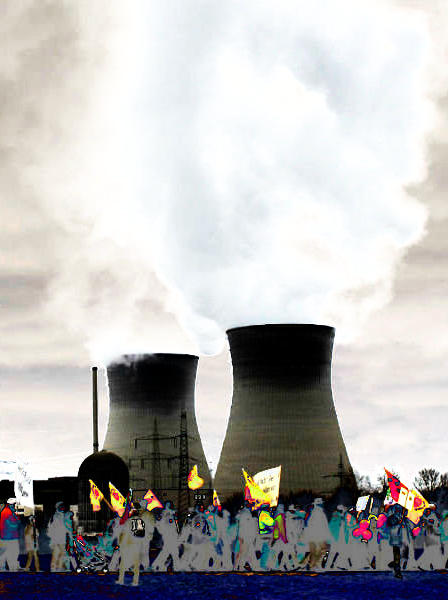Sun sets on German stations
 Germany is shutting down its last three nuclear reactors, ending a six-decade-long use of nuclear power as a key part of the country's energy mix.
Germany is shutting down its last three nuclear reactors, ending a six-decade-long use of nuclear power as a key part of the country's energy mix.
The move was part of Germany's plan to transition to renewable energy, drawing cheers from environmentalists who campaigned for the shutdown.
The shutdown was also closely watched abroad, as other industrialised countries such as the United States, Japan, China, France, and Britain are relying on nuclear energy to replace fossil fuels.
The shutdown was met with scepticism and last-minute calls for a halt, but not enough to dissuade it. Germany's decision to shut down nuclear reactors was influenced by decades of anti-nuclear protests and disasters at Three Mile Island, Chernobyl, and Fukushima.
Environmental groups marked the day with celebrations outside the three reactors, as well as rallies in major cities, including Berlin.
However, defenders of atomic energy argued that fossil fuels should be phased out first as part of global efforts to curb climate change, adding that nuclear power produces far fewer greenhouse gas emissions and is safe if managed properly.
While the German government acknowledges that, in the short term, the country will have to rely more heavily on polluting coal and natural gas, it is on track to be carbon-neutral by 2045.
Many of Germany's nuclear power plants will only be partly dismantled by 2030, and the question of what to do with 62 years worth of highly radioactive material remains unsolved.
Despite the national debate in Germany about whether the nuclear shutdown is a good idea, other European countries such as Finland, Sweden, France, and Britain plan new nuclear developments.
Finland's much-delayed Olkiluoto 3 (OL3) nuclear reactor, Europe's largest, began regular output early on Sunday, its operator said, boosting energy security in a region to which Russia has cut gas and power supplies.







 Print
Print